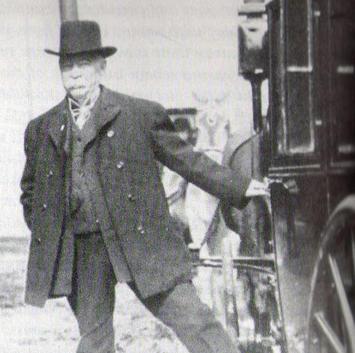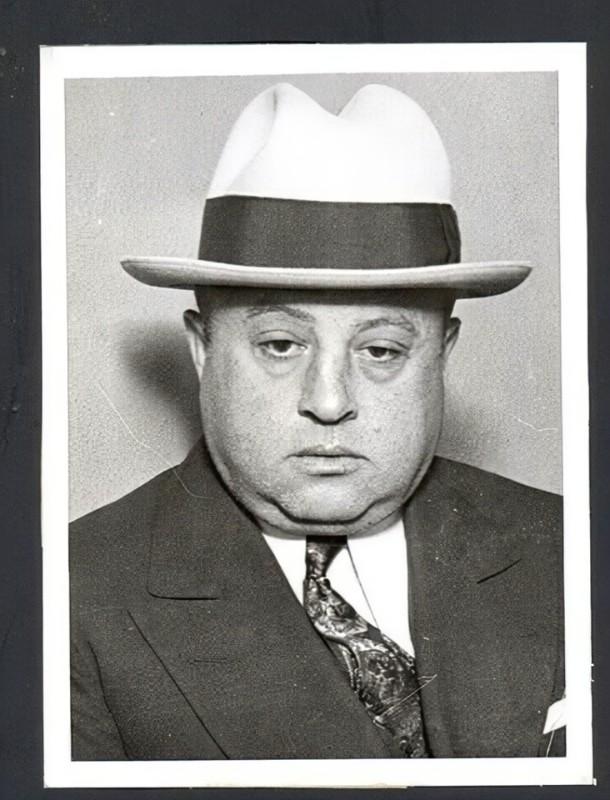Back on December 3rd, 2023, the Chicago Tribune‘s Commentary section carried a full-page article related to gambling in the city. The article was in response to the on-going controversy of allowing a new casino to open up downtown. A public official griped, “You might as well bring back Al Capone.”
Like those Pavlovian dogs responding to a bell, someone at the Tribune immediately went to work on the piece, which they titled “Operating under mob rule.” Predictably, two swarthy-skinned crooks, Al Capone and his mentor Johnny Torrio, are credited with establishing gambling in the city.
What this article reveals is the power of propaganda. People have been fed this Capone/Torrio tripe for so long that it has basically frozen their brains. That pronoun refers not only to the general public but—more scarily—to public historians whose job requires them to look at the bigger picture.
The bigger picture is a simple one; basically, gambling and vice in Chicago did NOT start with two Italian American thugs. Historians need to unfreeze their brains: Chicago history started unofficially with trader Jean Baptiste DuSable’s settlement in the 18th century and officially via its incorporation in 1833. In sum: Corruption and gambling were around long before any Italians arrived in the city.
Below is a letter-to-the-editor which I wrote to the Tribune in response to their lazy misinformation.
Sadly, no pictures of the thugs I mentioned were shown. But we’ll do so for our readers. -BDC
TO THE EDITOR: Chicago’s First Crime Boss: Michael Cassius McDonald

Michael Cassius McDonald
In one of his less-lighter moments, Mark Twain said, “History is strewn thick with evidence that a truth is not hard to kill, but a lie, well told, is immortal.”
One of those lies—I prefer the less-loaded term ‘flabby truths’— is the immortal notion that the history of organized crime in Chicago began with Al Capone. Historians worth their salt know that history begets history; that is, it stretches backward. And yet, as per the Tribune’s piece of Dec. 3 on illegal gambling in Chicago, those blinders remain firmly in place (“Operating under mob rule”).
The first big organized crime boss in Chicago wasn’t Capone but Michael Cassius McDonald, whose “Store,” the name of his huge gambling emporium in the 1870s, turned him into Chicago’s “shadow mayor.” McDonald’s millions, both legal and illegal, allowed him to pay off politicians, police officers and judges. His influence was so vast that, during a visit to the White House, he persuaded President Chester A. Arthur to pardon a friend.
McDonald was followed by Jacob “Mont” Tennes, who earned the moniker “King of the Gamblers.” Tennes went a step further than McDonald and paid police officers to raid his rivals’ gambling joints. Predictably, his rivals didn’t appreciate this. In the early 1900s, Chicago became known for what the press called the “Gambling Wars.” Bombs flew in the air like confetti.

Al Capone’s mentor
After Tennes, there was Ike Bloom, who ran the Levee district, a hotbed of gambling and prostitution. Bloom had a colorful nickname as well: “King of the Brothels.” Bloom’s millions likewise kept justice at bay. One of his activities wasn’t colorful: white slavery, what we refer to now as sex trafficking. Sadly, even madams like the Everleigh sisters participated in it.
Even more so than Bloom, Mike “The Pike” Heitler and Jake “Greasy Thumb” Guzik turned white slavery into big business. So did Jack Zuta. All three lawbreakers made sure that local politicians and law enforcement were paid well to leave them, and their rackets, alone.
A few years later, Guzik befriended a newcomer to Chicago named Alphonse Capone and showed him the lay of the land. A Brooklyn native, Capone quickly capitalized on Guzik’s advice. The rest, as they say, is history.
The historical lesson: Behind every successful crook are more successful crooks. -Bill Dal Cerro, Chicago




Very well done and informative.
So after many years of our exploring this dilemma, it begs the question why is the focus almost completely on vowel ending criminals. Apart from the legacy that Coppola engendered I feel the most salient reason can be found in something comedian Pat Cooper (Pasquale Caputo) once stated. As a young man I was entertained by his colorful stylings, but admittedly disappointed when posed this question his answer was, “Because we make better gangsters”. It seems society and sadly out own ethnic group en masse has capitulated to this miasma.
Ann Coulter has said in the past that Italians brought organized crime to America for the first time. See https://www.lubbockonline.com/story/opinion/columns/2018/05/21/coulter-that-was-then-this-is-now-irish-immigrants-were-not-perfect-either/12174233007/
It is crazy to think that people actually believe that previous immigrants were all delicate flowers. I wonder if Scorsese’s Gangs of New York was an attempt by Scorsese to actually show the simple truth exposed in this article. There was plenty of organized crime well before the Great Arrival of Italians.
Nice comments, everyone. Thanks!
I love Coulter’s sass and savvy (very smart and articulate woman) but she is flat-out wrong about “no organized crime” in America until the Italians arrived. She does mention that the Irish were “criminals” but doesn’t note that they (along with the Jews) formed the nucleus of such. And what allowed these ethnic groups to move beyond their claustrophobic ghettos and into WASP society? It was Prohibition.
And who spear-headed Prohibition? Her ancestors–also WASPs. They hated alcohol.
Even worse: they hated new immigrants who loved alcohol (beer for Germans, wine for the Italians). Yet WASPs certainly, willingly participated in illegal drinking, no?
Yes.
She also conveniently forgets that other WASP initiatives like slavery and annihilation of native Americans are supreme examples of “organized (!) crime.”